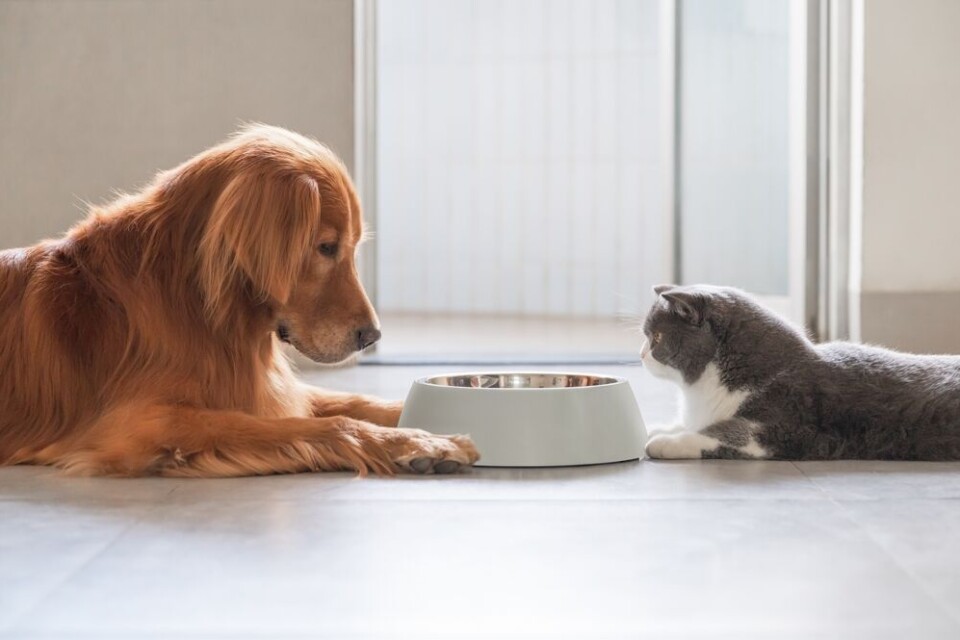-
Bikers tag dangerous French roads to shame authorities
Operation carried out for a number of years by local groups of the Fédération française des motards en colère
-
Transavia to replace Air France for Nice-Orly flights
Up to eight return journeys a day to be offered by the budget carrier
-
Is this the end of free mountain rescue in France?
A new report says that charging for services is ‘legitimate and necessary’
France bans nitrates for pet food but only reduces them for people
How a pack of food for President Macron’s dog highlighted a curious discrepancy between pet and human food - and the latter’s links to colon cancer

A French MP has criticised what he has called government inaction on health after pet food companies banned harmful sodium nitrates from their products, when human food is still permitted to contain them.
Richard Ramos MP has highlighted the discrepancy, after sodium nitrates were banned from pet food sold for cats or dogs in the European Union, in a decree published on June 15. Yet, added sodium nitrates are still permitted in human food, especially in charcuterie and ham.
Sodium nitrate is a common type of preservative typically used in cured meat products. It helps to keep their colour pink, and extends their shelf life.
Some nitrates are found naturally in food, such as vegetables, and humans need them to stay healthy. However, added sodium nitrate preservatives of the kind found in deli meats (and pet food) have been linked to heart complaints, colorectal cancer (see below), and conditions such as diabetes.
Nemo, the president’s dog
Mr Ramos drew attention to this issue earlier this month, by publicly sending a packet of ‘nitrate-free’ pet food to President Emmanuel Macron, for his dog Nemo.
The MP has long called for more action on the preservatives in human food.
The EU decree came after pet food manufacturers themselves decided to withdraw their application for sodium nitrite and several other additives in 2021, meaning that they are now effectively banned (although the EU allows a transitional period to July 2025, during which existing stocks can be used up).
The manufacturers have said that they decided to take the step after finding that most food did not need the added nitrates to stay in good condition (except for some with a high water content, such as pâtés), and in anticipation of a possible future ban.
Health effects on pets and humans
There is little consensus on the effect that the preservative can have on pets; a European Food Safety Agency (EFSA) report from November 2020 concluded that there was a lack of studies to draw conclusions.
It stated: “There are no relevant data identified in the scientific literature on the kinetics of nitrates and nitrites in rabbits, poultry, dogs, cats, fur animals, or fish.”
In contrast, in July 2022, health safety agency l’Agence nationale de sécurité sanitaire said that a link exists between exposure to nitrates through processed meat, and the risk of colorectal cancer (although some have suggested that the link to colorectal cancer is less to do with the nitrates and more a result of the consumption of processed meat).
‘Action plan’ criticised
As a result of this report, at the end of March 2023, France announced an ‘action plan’ against nitrites. However, this did not call for a ban, but instead for a reduction in the maximum permitted levels.
This decision was condemned by several health organisations and campaign groups.
Figures from health authority Santé publique France show that the consumption of charcuterie is linked to more than 4,300 cancers per year, mainly colorectal. This type of cancer is the second most deadly for men and the third for women in France.
Alternatives to harmful nitrates - which have similar preservative effects - already exist, and many brands do offer ‘nitrite-free’ charcuterie ranges (although these are often more expensive than their nitrate versions).
The EU has been debating nitrates for several years, and in May this year (2023), the Standing Committee on Plants, Animals, Food and Feed (Scopaff) voted for new, lower maximum thresholds to come into force in October. Each country was also given authority to choose ‘traditional speciality’ products for which the use of a higher level of nitrates should be considered ‘essential’.
Camille Perrin, from the European Consumers' Organisation (BEUC), said that the rules do not go far enough. She told Le Monde: “The reductions that have been voted on are minimal.”
Related articles
‘People feed their pets before themselves’, says French animal charity
























